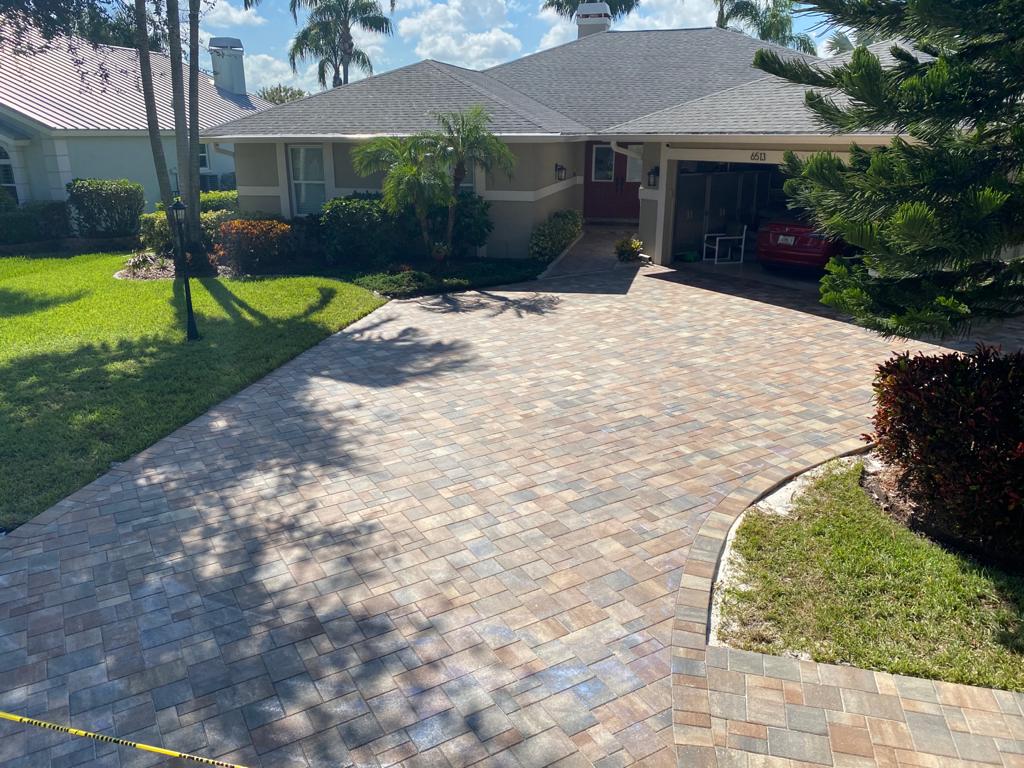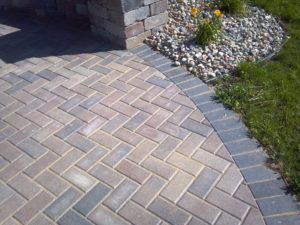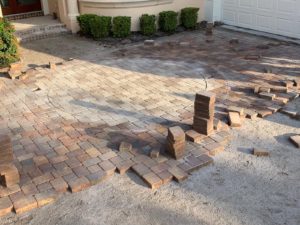The width of a driveway can be confusing and depends on a lot of factors. That’s why when people decide to build a driveway, one of the most asked questions is “how wide does a driveway need to be?”.
A driveway can make a big first impression, and the dimensions are one of the most critical aspects of your layout. Before you make up your mind, be conscious of the design of your driveway installation as well as the type of vehicles you plan to park on it.
Do you want to build a driveway, but have no idea how wide a driveway needs to be? Don’t worry! In this article, you’re going to find everything you need to know about the driveways!

Driveway Width: How Wide Should a Driveway Be?
The width of a driveway will vary based on whether you want a single car drive or double car drive, how many cars you plan to park, and the sizes of your cars. A driveway must be large enough to easily park your cars.
Generally, the one-way driveway width is enough for those who own only average size cars. A two-way driveway width installation is required for those who own larger vehicles.
Single car driveways can be from 10 to 12 feet, while double car driveways can be between 20 and 24 feet wide, but if you need space for parking two cars, consider the width of 24 feet.
Check the chart below to see the recommended width for each type of driveway.
| Type | Size range |
| Single Car Driveway | 10 – 12 feet |
| Double Car Driveway | 20 – 24 feet |
| Single Car Turn-around | 10 feet x 20 feet |
| Double Car Turn-around | 20 feet x 20 feet |
It’s important to remember that those are only measures to reference. You should always take your cars’ size into consideration before building a driveway.
Is there a Minimum Width for a Driveway?
If you have enough space available, you can plan your driveway width with a minimum of 10 feet for each vehicle and 2 feet more to walk easily between the cars or other vehicles.
What About Driveway Parking Space?
The width of a driveway parking space depends on how many cars you are considering to park. The recommendation is 10 feed of width by 22 of length per vehicle. And if you prefer to have a side by the side parking area, the recommendation is 20 feet to 24 feet in width.
But if you own bigger vehicles, you might need to add some feet to your parking area. As a result, the more room you provide for driving and vehicle tires, the less damage your asphalt or paver surface will suffer, and the less likely it is for a crash to happen.
What Should I Pave my Driveway With?
You should not only think about practicality but also keep in mind as well as the longevity of the installation investment. For driveways to last, the surface needs to be resistant and able to hold a lot of weight and friction. After all, cars are passing over it all the time.
Pavers are the go-to option for covering a driveway surface and are well known for being durable and resistant. Plus you can even boost your curb appeal depending on how you choose to install them and in what style/color.
Comparing pavers to flagstone, we recommend paving your driveway with concrete pavers. Even though flagstones are equally durable and resistant, if you install them in a driveway, they can break easily since they are thinner than bricks and can’t take the heavyweight so well.
The Benefits of a Paver Driveway
A driveway installation may look just like another expense at first, but you will see that a driveway comes with more pros than cons in the long term.
As mentioned earlier, pavers are incredibly durable, with just a little maintenance from time to time being necessary. They can handle the weight of vehicles without cracking or becoming damaged. And they also increase your curb appeal. After installation, driveway pavers will instantly make a difference in your house facade. A nice and well-designed driveway can make such a difference that it will even add value to your property if you sell it eventually.
You can have a professional contractor install driveway pavers in a couple of days, and S&S Pavers has over 10 years of experience doing that in the counties of Manatee and Sarasota. From the design of your project to its execution, we can handle everything. Get a free estimate! If you live in Florida, don’t hesitate to contact us!
FAQ
Q: What is the proper width for a driveway with two cars?
A: Usually between 20 and 24 feet wide. 20 x 20 in case of turn-around.
Q: What is the average width of a car?
A: It is a standard of the industry that no vehicle should exceed 8 feet in width. On average, the width of a simple car is 5.8 feet. As for pick-up trucks, they are, on average, 6.7 feet wide.
Q: How thick should concrete pavers be for a driveway?
A: A semi-official guide of the industry is to use 80 mm pavers with a standard six inches base for a driveway.
Q: Is poured concrete cheaper than paver for a driveway?
A: Technically, yes. The upfront costs are poured concrete are cheaper. However, in the long run, concrete doesn’t even come close to be as good as pavers. Pavers have much more durability and cans last for a lifetime when properly cared for, whereas poured concrete last for three years at the most before cracking and need replacement.
Q: Can I use 50 mm pavers for a driveway?
A: You can get away with a 50 mm paver if you own a small, light domestic car. Anything bigger will require at least a 60 mm paver. For heavier vehicles, such as a 4×4 and SUV, anything less than 80 mm is out of the question. There’s not a lot of difference in price from the 50 mm to the 80 mm paver, so you might as well go with the strongest option from the start.




